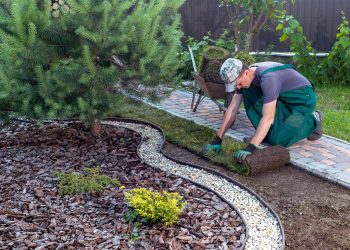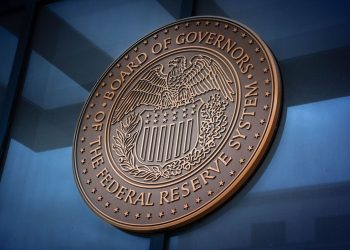The LGBTQ+ Real Estate Alliance has published its third annual LGBTQ+ Real Estate Report, titled “The LGBTQ+ Journey to Homeownership.”
“The report uses 30 different sources, along with our annual member survey, to gain insight into the journey to homeownership for the LGBTQ+ community beginning when they first strike out on their own,” said Ryan Weyandt, CEO of the LGBTQ+ Real Estate Alliance.
The report found found that “formalized” relationships, engagements and marriages are a major driver of LGBTQ+ homeownership. However, anti-LGBTQ+ bills and rhetoric seen in Congress and statehouses around the nation are having a negative impact on consumer confidence and homeowner behavior.
Why LGBTQ+ homeowners are buying:
- 37.7% of LGBTQ+ respondents identified a “formalized” relationship, engagement, or marriage as one of the top three reasons for their decision to become first-time home buyers. This was the top home purchase driver after three different financial considerations.
- Lesbian women (58.4%) were more likely than gay men (34.3%) to report a “formalized” relationship, engagement or marriage as one of the top three reasons for the purchase of their first home.
- Straight respondents (53.8%) had this is the second most important trigger to purchase after “long-term financial investment.
- 8.2% of all LGBTQ+ respondents said that children/growing family was a “top three reason” for buying their first home – this percent increases to 16.2% for a second home purchase and comes in at 12.7% for a third home purchase.
- Only 2.5% of gay men cited children/family as a top three reason for first home buying. On the other hand, 16.3% of Lesbians did.
Where LGBTQ+ homeowners are buying
-
- 51% of LGBTQ+ adults shared that they prefer to live in suburbs or small towns with a mix of homes, shops, and offices.
- 46.6% of all LGBTQ+ respondents purchased a first home in an urban area, while 41.3% purchased in a suburban area.
- However, 45.9% said their second home was in a suburban area, compared to 40.9%.
- 51% of LGBTQ+ adults shared that they prefer to live in suburbs or small towns with a mix of homes, shops, and offices.
- More than 90% of straight LGBTQ+ Real Estate Alliance member respondents purchased their first home by 33 years of age compared to only 75.9% of LGBTQ+ people.
- The Alliance member survey found that nearly 90% of LGBTQ+ respondents first lived on their own prior to 24 years of age, with 12.3% doing so before they turned 18.
- More than half of LGBTQ+ people surveyed began living on their own in a building with at least 5 units. Gay men were 26.6% more likely to start in such a building than straight surveyed respondents.
- The Alliance survey found that 31.5% of all LGBTQ+ members considered a community’s social and dating scene as one of the top five reasons they selected where to first live on their own.
- 28.5% of all LGBTQ+ people cited a strong LGBTQ+ presence while 24.5% cited nightlife. Gay men rated each slightly higher at 35.6%, 29.8% and 28.9%.
Impact of discriminatory legislation
- The report cites data from the ACLU, which is tracking more than 435 anti-LGBTQ+ bills in the United States, and the Center for American Progress, which shared that 51% of LGBTQ+ adults – and 81% of transgender people – felt that these discriminatory bills negatively affected their mental health or made them feel “less safe.”
- Nearly 70% of Alliance members believe that the current number of anti-LGBTQ+ bills being passed or discussed in statehouses around the nation will negatively impact the financial stability of LGBTQ+ people.
- Per a cited survey by the Williams Institute at UCLA:
- 56% of LGBTQ+ parents in Florida considered moving out of state after the passage of the “Don’t Say Gay” bill.
- 16% have taken steps to move out of Florida.
- 74.3% cited the political climate in Florida as a “major downside.”
- 23.1% reported fear of harassment due to their sexual/gender identity.
- 21% of LGBTQ+ Real Estate Alliance members believe discrimination against LGBTQ+ potential homebuyers has increased over the last three years, compared to 17.9% in 2021. Only 12.7% believe discrimination has lessened compared to 25.9% a year ago.
- Surveyed on the most visible causes of anti-LGBTQ+ discrimination in real estate, Alliance members said:
- 20.3% cited “legal forms needing signatures that do not adequately represent life experiences of potential homebuyers.”
- 20.1% cited discriminatory sellers.
- 19.8% cited real estate professionals discriminating against homebuyers, while 17.1% cited professionals discriminating against potential talent.
The takeaway:
“We now have data that shows why urban centers are attractive to the LGBTQ+ community as most rent there at the start of their professional lives,” said Weyandt. “We also have a greater awareness of what drives community members to purchase homes, including the impact of same-sex marriage and children. Unfortunately, the gains our growing LGBTQ+ population has made are suffering some today as a minority in our nation, including elected officials, are attacking us with greater frequency.”
“The report shows what we have been saying for years, LGBTQ+ people are people and we value so much of the same things as everyone else,” LGBTQ+ Real Estate Alliance Erin Morrison, a REALTOR® in Texas said. “We want access to good jobs, affordability, to be near our friends and family, have loving relationships and live in welcoming communities. We deserve respect, dignity, and the unhindered ability to be us.”
The full report can be read here.












